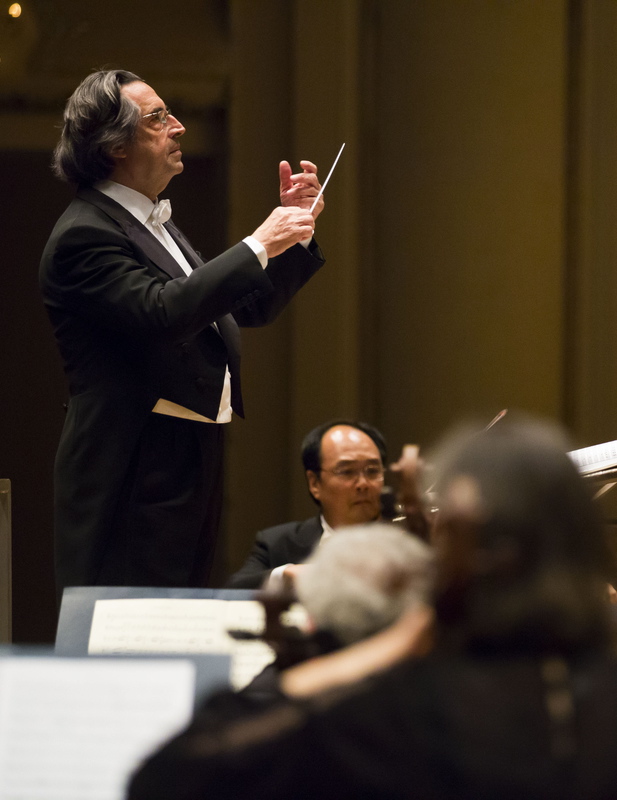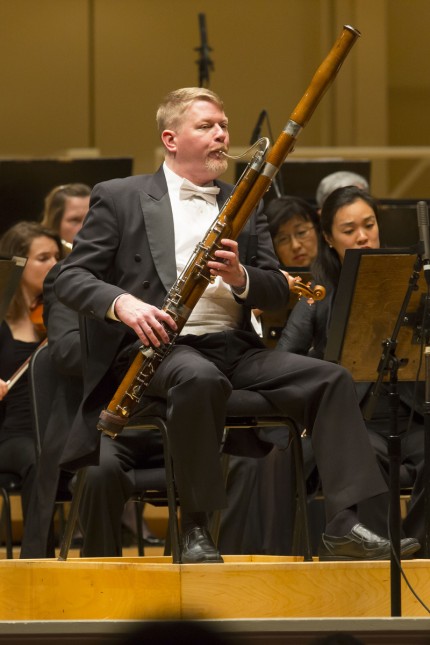Muti is back for a gracious evening of Viennese Classicism and a bittersweet farewell

Riccardo Muti is back in town to lead the final two weeks of the Chicago Symphony Orchestra’s season. If there were even more smiles than usual and an extra spring in the music-making Thursday, the announcement earlier in the day that the CSO had garnered a record $32 million in two generous gifts clearly didn’t hurt anyone’s mood.
Muti is wrapping his season-long Schubert cycle in this last pair of programs and knocked off two more installments Thursday with Schubert’s Symphonies Nos. 1 and 6.
Though coming later, the Sixth (played first) is a work of more moderately scaled Classicism than Schubert’s debut entry in the genre. One can play spot the influences with Mozart, Haydn and even Rossini fitfully dropping in to say hello.
Yet there is also much that is inimitably Schubert—qualities underlined in the finely balanced performance led by the CSO’s music director, which virtually defined “Viennese.” The gracious charm was there in abundance without feeling Biedermeier-soft or sentimental under Muti’s direction– dynamic details firmly pointed yet with an ease and naturalness that never felt pedantic.
No single musician is irreplaceable in a symphony orchestra, but if Mathieu Dufour decides to leave Chicago for Berlin, the principal flutist’s loss will leave a gaping void that will be hard to fill. Woodwind lines are given great prominence in Schubert’s Sixth Symphony, and Dufour’s elegant, lightly spun playing led the winds with supreme lyric grace and tonal finish. It was rather depressing to think that one may have been hearing the wondrous interplay of Dufour with oboist Eugene Izotov and clarinetist Stephen Williamson for the last time Thursday. The Rococo grace of the Andante was espcially delightful in the hands of Dufour and colleagues.
Even with the uber-Viennese surface, Muti brought characteristic individuality to the performance of the Sixth Symphony. In the galumphing Scherzo, the CSOs’ music director crouched low on the podium for dynamic drops, and the final Allegro was taken with a wry, mock-galant style as if Schubert was paying heed to the Classical musical conventions while subversively satirizing them.
Two Schubert symphonies on one program would be a challenge for many, but, typically, Muti pointed up the differences in these two works as artfully as the similarities.
Schubert’s First Symphony is a grander, more majestic work and Muti gave it due weight without the music ever feeling heavy or out of period. The outer movements went with wonderful vitality, balances impeccable and with a high degree of tonal sheen. Muti consistently enlivened the proceedings with textural transparency and varied details as with the Gothic drama of the trio in the flowing Andante.
David McGill offered a memorable outing in Mozart’s Bassoon Concerto three years ago and proved an equally winning solo protagonist in the same work Thursday night.
There was a bittersweet quality to McGill’s Mozart performances this week as they mark his final solo appearance as CSO principal bassoon. McGill is retiring from the orchestra this summer to teach and pursue other endeavors.
As with all great music-making, there was a feeling of unforced, inevitable rightness about McGill’s Mozart performance. McGill assayed the solo lines with a polished ease and understatement that had a chamber-like intimacy, even a sense of private reverie. His mellow, singing tone in the Andante was especially lovely and McGill pointed the minuet inflections of the concluding Rondo with a relaxed contentment that seemed as natural as breathing. Muti and the reduced CSO ensemble provided their out-going colleague with comparably polished and sensitive support.
The program will be repeated 1:30 p.m. Friday, 8 p.m. Saturday and 7:30 p.m. Tuesday. cso.org; 312-294-3000.
Posted in Performances



